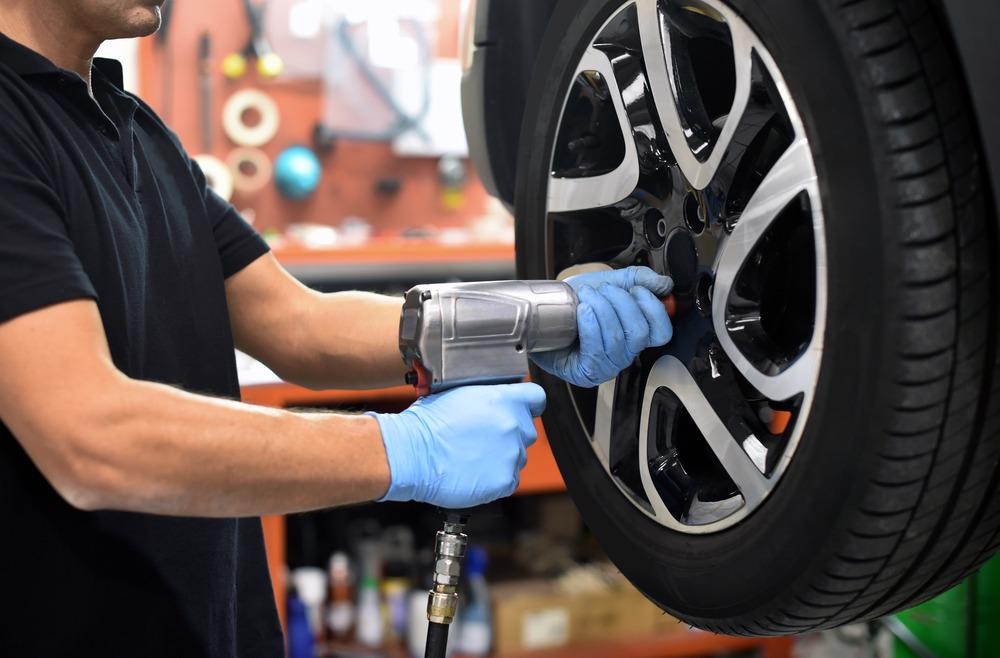The world is under pressure to meet challenging climate change goals to protect our future. The transportation sector, a major contributor to greenhouse gas emissions, must make a significant change to become carbon neutral.

Image Credit: Clare Louise Jackson/Shutterstock.com
Electric vehicles are a key strategy to bringing down emissions, although the tires used on such vehicles are still associated with carbon emissions and air pollution. A new development from ENSO will offer sustainable tires for electric vehicles that will help to make them more environmentally friendly and address the challenges currently faced by the electric vehicle sector.
Reducing Emissions by Changing the Transportation Industry
The transportation sector accounts for almost a third of all emissions. Conventional cars play a significant part in this, emitting roughly 4.6 metric tons of carbon dioxide into the atmosphere each year.
To get the world on track to meet the goals of the Paris Agreement to prevent the global rise in temperatures from exceeding 1.5°C, radical change is needed in all sectors, particularly those that have sizable carbon footprints such as the transportation industry.
In recent years, electric vehicle production has increased worldwide as the car industry seeks to become more sustainable and prepare for the ban on traditional gas-fueled vehicles.
Sustainable electric vehicles are being seen by many as an important tactic to helping the world to reduce its carbon emissions and prevent the detrimental impact of global warming on our planet.
The last two decades have witnessed the drastic evolution of the electric car. Adoption of the eco-friendly vehicle has previously been prevented by concerns over the availability of charge points and the distances electric vehicles could travel without needing to charge as well as issues around the high cost. These barriers have been widely overcome and the electric car is ready to take over from the traditional one.
Costs have significantly lowered, and electric car owners no longer need to worry about charging, with average models traveling between 200 km and 400 km, with some brands achieving double this.
However, while electric vehicles have become more efficient, helping to bolster their widespread adoption, electric vehicle production remains far from 100% sustainable. Battery production and tire production contribute to emissions via increasing demand for the mining of precious metals for battery production and the deforestation, plastic pollution, and emissions related to the production of tires. The assembly process and transportation/distribution of electric vehicles also contribute to emissions.
Sustainable Tires for Electric Vehicles

Image Credit: Photology1971/Shutterstock.com
ENSO, a company hosted by the Jaguar Land Rover InMotion Ventures Incubator in London, is developing sustainable tires for electric vehicles that will reduce the environmental impact of tires, helping electric vehicles to become greener, and improve the driving performance of electric vehicles.
ENSO hopes to deliver revolutionary tires without passing on an additional cost to drivers, which will hopefully see the technology become widely adopted.
While electric vehicles address the emissions related to exhaust fumes, research by Emissions Analytics found that particulate matter from tire wear particles is 1,000 times worse than car exhaust fume emissions. The research looked at tire wear testing using a popular family hatchback with new, properly inflated tires. The car emitted 5.8 g/km of particles.
"Compared with regulated exhaust emissions limits of 4.5 milligrams per kilometer, the completely unregulated tyre wear emission is higher by a factor of over 1,000. Emissions Analytics notes that this could be even higher if the vehicle had tyres which were underinflated, or the road surfaces used for the test were rougher, or the tyres used were from a budget range – all very recognisable scenarios in ‘real world’ motoring."
Emissions Analytics
Exposure to tire wear particles has been linked with an increased risk of several health conditions and diseases such as some types of cancer, cardiovascular disease, and asthma.
Particles that enter the air as a result of tire wear not only contribute to air pollution, which has been shown to reduce life expectancy, but it also contributes to the pollution of our oceans. Experts estimate that by 2030, tire wear particles generated by cars in the UK alone will account for 350,000 tons of microplastic in the oceans, a figure set to rise to 850,000 tons by 2050.
ENSO has created durable designs that prevent tire wear particles from leaving the road and entering the air and ocean. The new tires they propose are constructed from non-carcinogenic materials that are fully recyclable, establishing a circular economy for electric vehicles.
ENSO’s sustainable tire production method will likely play a major role in reducing the environmental impact of electric vehicles and helping to facilitate their widespread adoption. This will help to drastically reduce the emissions of the transportation sector.
Addressing the environmental issues associated with tire production and use is important to highlight that not all processes of ‘clean’ technology are emissions-free. This may help encourage future projects that address other emissions-associated processed related to electric vehicles and other clean technology, such as clean energy.
ENSO
Video Credit: ENSO/YouTube.com
References and Further Reading
Cohen, A., 2000. Outdoor air pollution and lung cancer. Environmental Health Perspectives, 108(suppl 4), pp.743-750. https://ehp.niehs.nih.gov/doi/abs/10.1289/ehp.00108s4743
Sustainable tires for electric vehicles. [Online]. ENSO. Available at: https://www.ensotyres.com
Hannah Whitaker. (2019). Tires: The plastic polluter you never thought about. [Online]. National Geographic. Available at: https://www.nationalgeographic.com/environment/article/tires-unseen-plastic-polluter
Lee, B., Kim, B. and Lee, K., 2014. Air Pollution Exposure and Cardiovascular Disease. Toxicological Research, 30(2), pp.71-75. https://link.springer.com/article/10.5487/TR.2014.30.2.071
Zeke Hausfather. (2019). Factcheck: How electric vehicles help to tackle climate change. [Online]. Carbon Brief. Available at: https://www.carbonbrief.org/factcheck-how-electric-vehicles-help-to-tackle-climate-change
Emissions Analytics. (2020) Press Release: Pollution From Tyre Wear 1,000 Times Worse Than Exhaust Emissions. [Online] Emissions Analytics. Available at: https://www.emissionsanalytics.com/news/pollution-tyre-wear-worse-exhaust-emissions
Disclaimer: The views expressed here are those of the author expressed in their private capacity and do not necessarily represent the views of AZoM.com Limited T/A AZoNetwork the owner and operator of this website. This disclaimer forms part of the Terms and conditions of use of this website.